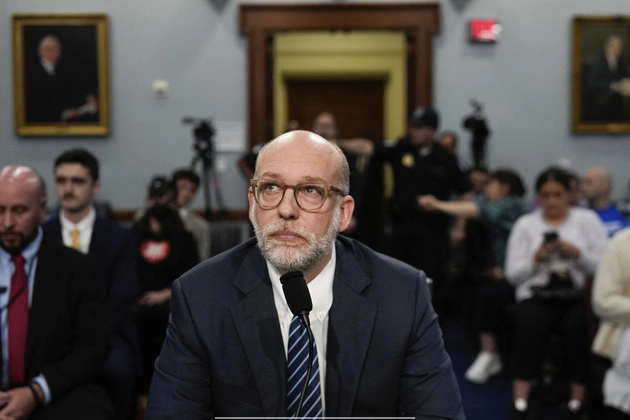
White House budget director Russ Vought emphasized the necessity of scrapping $9.4 billion, urging senators to approve President Donald Trump’s proposal. Despite GOP resistance, Vought defended the plan to eliminate funding for global health programs, public radio, and PBS.
Challenging the Status Quo
During his testimony before the appropriators, Vought outlined the White House’s rationale for canceling $8.3 billion in foreign assistance and $1.1 billion for public broadcasting. While a small fraction of the federal budget, these cuts form a crucial part of Vought’s strategy to revoke previously approved funding, prompting concerns among Republican lawmakers.
Addressing Public Concerns
Vought raised eyebrows by highlighting that tax dollars meant for medical care were redirected to initiatives like far-left activism, population control, and support for sex workers through global health funding. He also criticized PBS and NPR, labeling them as ‘radical far-left networks’ and advocating for an end to taxpayer subsidies.
Protests erupted during the hearing in response to the proposed cuts, with activists denouncing the potential impacts on global health programs and AIDS prevention efforts. Capitol police intervened to manage the disruptions, underscoring the contentious nature of the debate.
Political Implications
If Vought fails to garner sufficient support from GOP senators, the White House risks another setback akin to the 2018 rejection of a $15 billion clawback request. Senate Appropriations Chair Susan Collins expressed reservations, particularly regarding cuts to PEPFAR, a vital AIDS-fighting program with a proven track record of saving lives.
Collins emphasized the importance of sustained funding for critical initiatives like disease prevention and public broadcasting, citing the broad societal impact of programs like ‘Antiques Roadshow’ and ‘Daniel Tiger’s Neighborhood.’
The Path Forward
If the Senate approves the clawbacks package, the Trump administration stands to reclaim funds and reduce the deficit, aligning with the broader agenda of fiscal responsibility. This move signifies a continuation of cost-cutting measures initiated by the president since taking office.
With key deadlines looming, Senate Republicans face complex decisions on the $9.4 billion clawbacks request and its implications for federal spending. The ongoing debate underscores the delicate balance between executive authority and congressional oversight in budgetary matters.
As the political landscape evolves, the contentious dialogue surrounding funding allocations and budgetary control remains a focal point of policy discourse in Washington.











